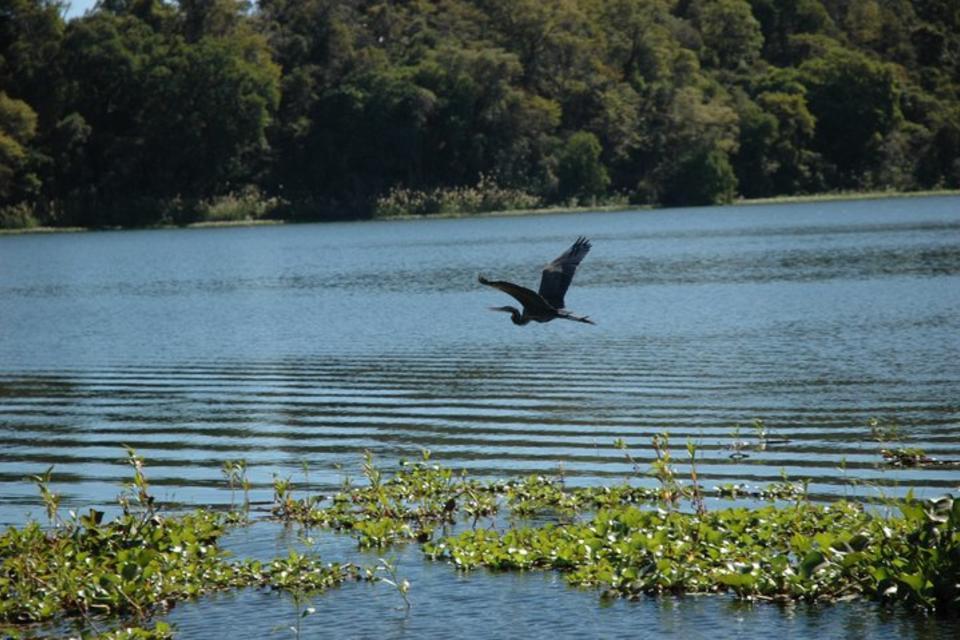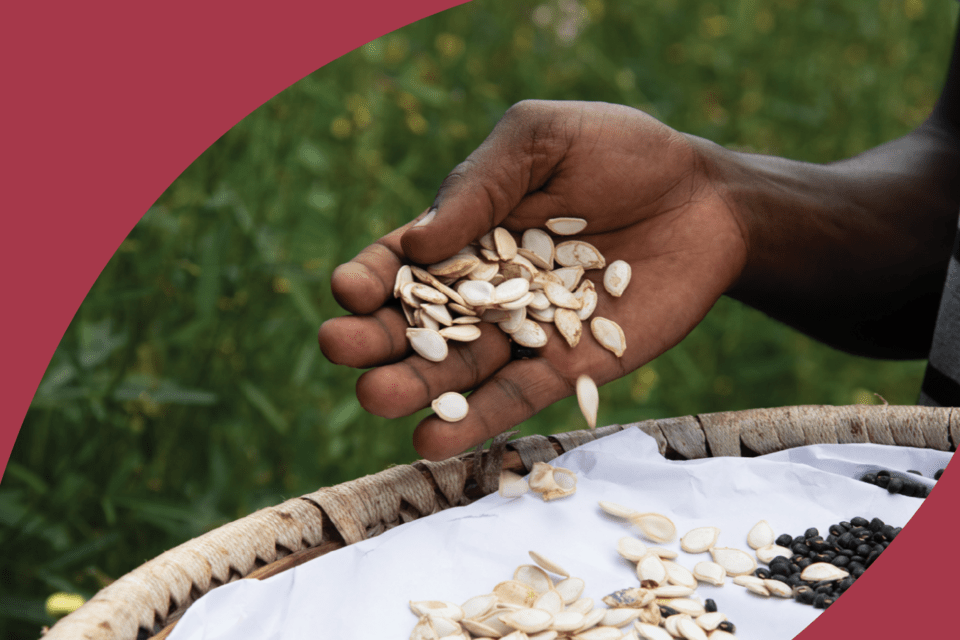From the Field Transformative Triumphs: Nature-Based Solutions Reshape Lives for East African Refugees in Kenya
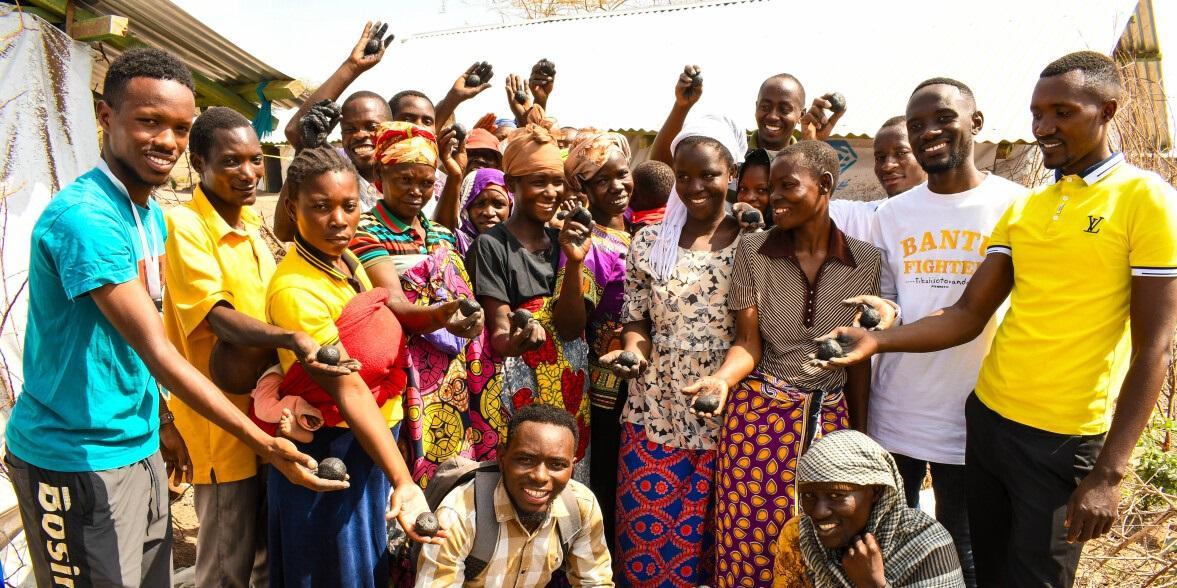
Conflict-driven displacements have affected around 79.5 million people globally, leading to an influx of refugees, particularly women and children. Refugees in East Africa, grappling with circumstances beyond their control, have found sanctuary in Kenya, specifically in settlements like Kakuma and Kalobeyei.
Despite the safety these havens offer, harsh arid conditions amplify challenges in accessing vital resources. The collection of fuel wood has sparked conflicts, particularly with host communities, leading to violence against predominantly female refugees. Moreover, deforestation for fuel exacerbates environmental degradation. In response, the Resource, Re-use, and Recovery (RRR) project, funded by Germany's Federal Ministry for Economic Cooperation and Development (BMZ), is introducing nature-based solutions to address the food and fuel crisis in Kenyan refugee settlements.
Impact of Introduced Innovations: The RRR project aimed to enhance the resilience of both refugee and host communities by introducing nature-based solutions. These solutions, including kitchen gardens, composting, agroforestry, and energy-efficient technologies, have had a profound impact. Households reported increased consumption of vegetables, savings from reduced purchases, and improved soil health leading to higher crop yields. The project has also enabled the cultivation of various fruits and addressed the challenges associated with access to cooking energy.
As the RRR project enters its final year, it is focusing on equipping 1800 beneficiaries in Kakuma and Kalobeyei with skills and knowledge for sustainable practices. Through a Trainers of Trainers (ToTs) approach, a recent refresher training by the Alliance of Bioversity International and CIAT reinforced these skills, ensuring the continued impact of these transformative nature-based solutions.
The success of the project is evident in the mastery displayed by the trainers during practical exercises. Michael Kinyua, a researcher from the Alliance of Bioversity International and CIAT, expressed confidence that the introduced solutions will continue to positively impact households. To reach a wider audience, the project extended its outreach to radio programs, with an estimated 250,000 listeners in both refugee and host communities. These programs addressed questions on home gardening, agroforestry, and cooking energy, providing valuable insights.
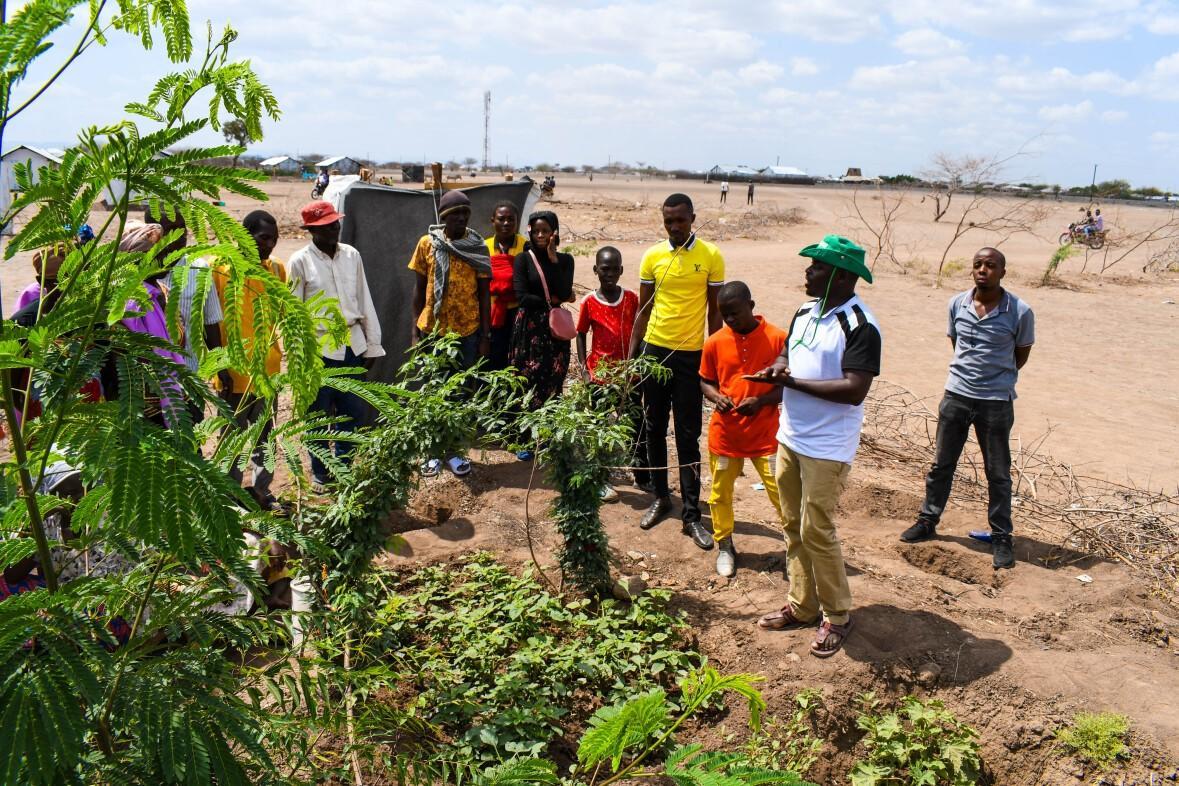
A community planted kitchen garden – Picture by Owen Kimani
As the project concludes, beneficiaries highlight key benefits, including regular access to quality vegetables, beautification of homes through tree planting, and the reduction of firewood-fetching struggles through briquette production. Testimonies from refugees underscore the tangible benefits of nature-based solutions in enhancing food security, environmental sustainability, and overall well-being within the refugee communities.
"Burning briquettes in the improved stove makes cooking faster, the food does not smell of smoke as with fuel wood, and leaves the cooking pot looking clean," attested a female refugee beneficiary. Another male refugee beneficiary shared, "For a long time, my household had not eaten vegetables as I could not afford. After the training, we established a kitchen garden, and I am proud that we can harvest quality vegetables when needed."
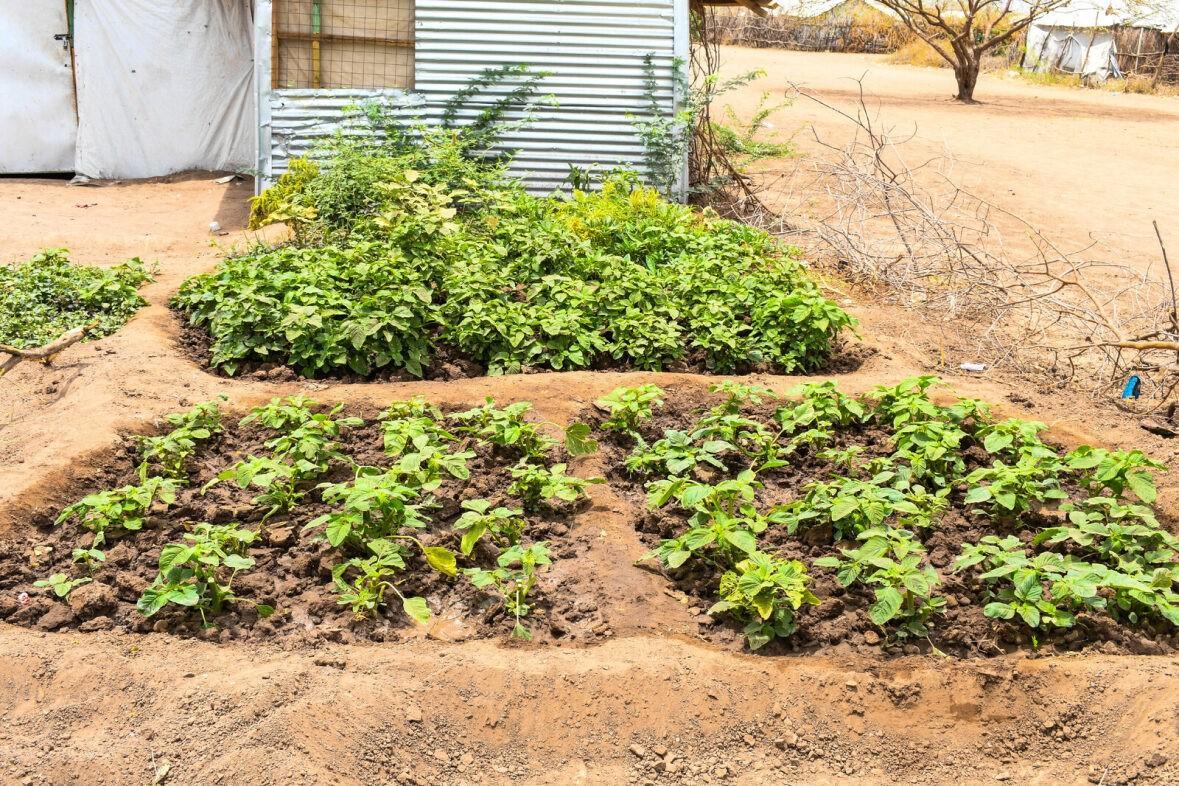
Picture by Owen Kimani.
Recommendations/Way Forward: Several recommendations emerged from the project experience:
-
Scaling Nature-Based Solutions: Efforts should be made to expand the implementation of nature-based solutions to address food, nutrition, and energy security challenges faced by both refugee and host communities.
-
Sustainability of Practices: Training on local seed systems and agricultural systems can enhance the sustainability of home gardening and agroforestry. Continuous sensitization on responsible animal grazing is crucial to mitigate conflicts associated with animal intrusion.
-
Environmental Conservation: Promoting agroforestry practices, sustainable biomass harvesting, and recycling of locally available organic matter for cleaner energy contribute to environmental conservation.
-
Gender Integration: Inclusive strategies during the introduction of nature-based solutions are essential to promote the adoption of technologies and alleviate socio-cultural behaviors oppressive to women.
-
Group Collaboration: Activating group collaboration among project beneficiaries can facilitate knowledge exchange, enhance technology adoption, and increase access to support, training, and markets.
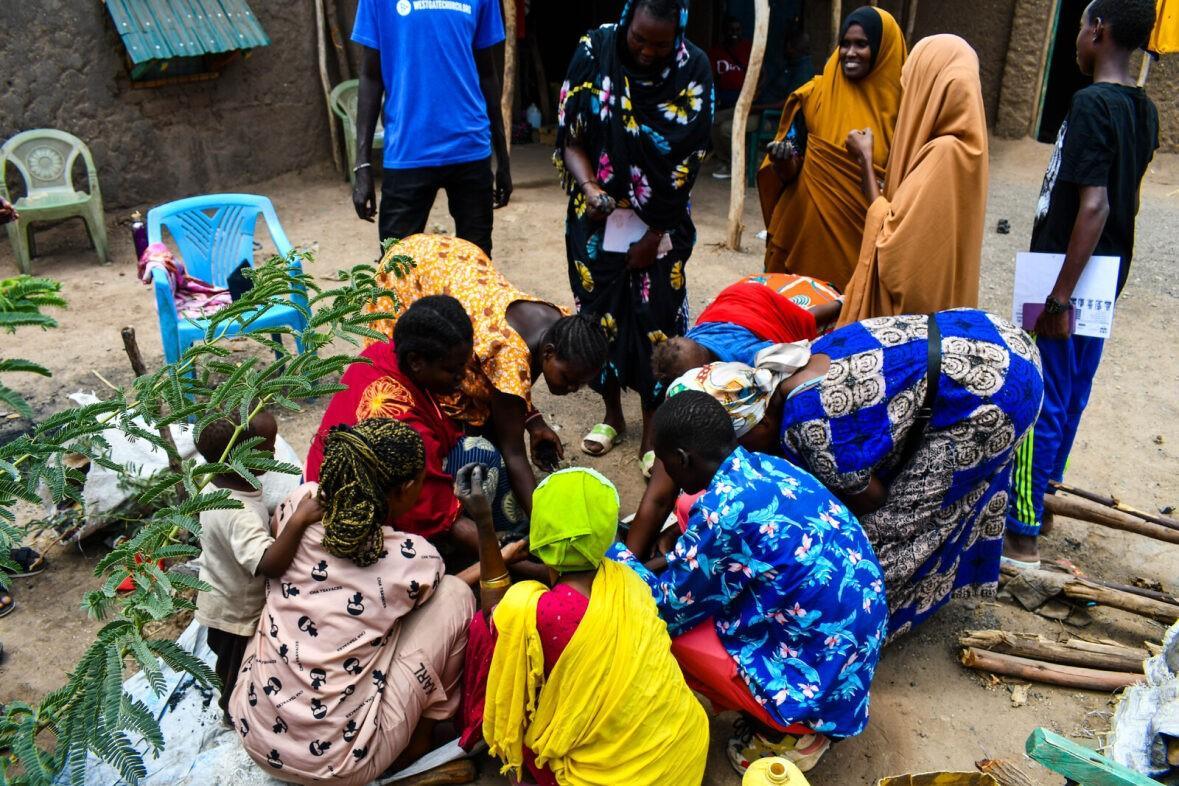
The community making briquettes – Picture by Owen Kimani.
In conclusion, the gender-responsive circular economy solutions introduced in Kakuma and Kalobeyei have brought about positive changes, empowering communities and fostering sustainable practices. Addressing challenges and implementing the recommended strategies will further contribute to the long-term success of these initiatives.

